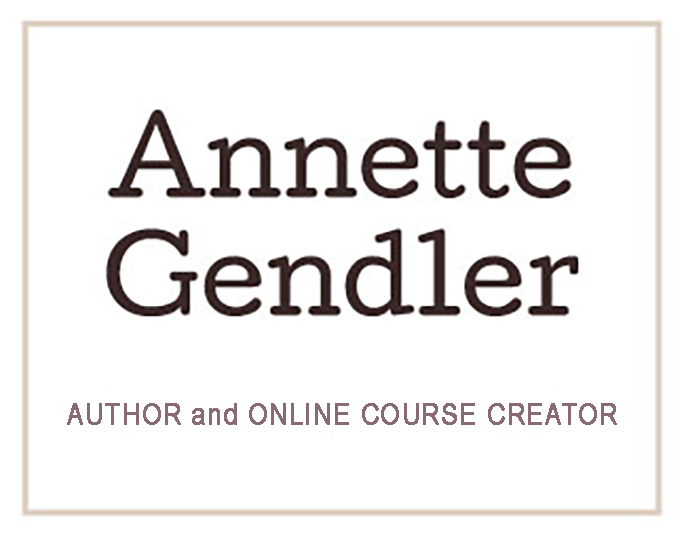
Hemingway Birthplace Home, Oak Park, IL
I just wrapped up serving as one of the judges in the Hemingway Shorts contest sponsored by the Hemingway Foundation of Oak Park, and I thought I’d share some of the insights I came away with:
-
- Don’t start your story with a weather report unless the weather is the main topic. This is my number one pet peeve from judging this contest. About 80% of the stories submitted began with a weather report, and about 95% of them had nothing to do with the weather. Beginning with the weather is not the way to distinguish your work from a pile of submissions. Weather reports are boring, so even if the weather is the topic, get on with it.
- Have your protagonist appear in your first paragraph. Readers relate to people, not things. Ditto the weather issue. If I couldn’t figure out who this story is about by the first paragraph, chances are I didn’t read on.
- Too many actors spoil the story. A short story is, after all, short! Too many characters diffuse the action and tension, plus your reader gets easily confused if there are a lot of names to follow. It’s another way to lose the reader’s attention, and a contest judge has to pay attention to a lot of stories. If yours makes this hard, it’s not going to happen.
- Mind your grammar, word choice, and spelling. Errors in any of these resulted in prompt rejection. By definition, a writing contest is looking for the best writing in a given genre, and the best writing does not contain errors. While spelling errors weren’t prevalent, I was astounded by the number of entries that had obvious language issues, such as using “attendance” when “attending” should have been used. Have someone else read your work before you submit, as those are the kind of errors the writer will easily miss.
- Keep to the word limit. Entries above the word limit were immediately deleted. While I didn’t come across many of these, there were still some.
- Submit early. Judges have to begin reading submissions before the deadline because of the sheer volume. A lot of submissions do come in right before the deadline, but a judge will also simply get tired from reading the flood and might have already settled, in his or her heart, on the top choices.
- Stay away from imitating a famous writer’s work. Because this was a “Hemingway” contest, we received a bunch of submissions that either featured Hemingway himself, or used one of his stories as a template, or mentioned his work. We didn’t like any of these; they came across as gimmicky and forced.
- Avoid war stories. We had too many of those and because of point 3., most of those didn’t work. This prevalence of war stories might again have been due to the “Hemingway” name, so one lesson here, to distinguish your work from the pile, might be to consider what clichés travel with the contest you’re submitting to and how you can counteract that.
- A female point-of-view or a younger person’s point-of-view are rare, and well written stories with those POVs are even rarer. Again, the folks submitting to a short story contest with the “Hemingway” name attached to it might have been a preselect group, so take this with a grain of salt, but still, if your stories feature these POVs, you might be in the minority. This doesn’t mean you have to be a woman to write from this POV. In fact, the winning entry featured a female protagonist but turned out to be written by a man.
- Rejection is easy. There weren’t that many stories I read to the end. If a story piqued my interest in the first paragraph, I kept on reading and, if it had my attention by the third or fourth, it at least ended up in the “maybe” pile.
- Coming up with a winner wasn’t hard. We judges were surprised that we instantly agreed on the most outstanding story. It had the most unique point-of-view, expertly executed. Choosing the ten finalists that would be published in the first Hemingway Shorts anthology along with the winner was harder. Presenting a variety of voices and topics became the decisive factors in making our selection, and we did have to let some good stories go.
- Judging a writing contest takes less time than you think. When I agreed, as a former writer-in-residence at the Hemingway Birthplace Home, to judge this contest, I expected it to be a huge time commitment. It wasn’t. As outlined in points 2-5, I ended up not having to read all of the submissions that came my way. My job was, after all, to weed out.
I hope some of my insights here are helpful if you’re considering submitting to a writing contest. Going by my experience, if your work is polished, adheres to the guidelines, has a beginning, a middle and an end as well as a narrative thread that pulls through, chances are you will make the first cut.
For me judging this contest was a refreshing experience and a wonderful way to engage with literature in the making. It was also lovely to be able to make a few writers happy by recognizing their work.

Very good advice!
Thanks!
Thank you for your overview on short story components. As the author of corporate crime novels featuring women balancing dynamic careers and private responsibilities, I most definitely appreciate your desire to read under represented topics with a woman's point of view. Check me out at patgitt.wix.com/pegpublishing
I will share this with my local fellow writers. Thanks for writing.
Please do, thanks!
Very helpful tips. Thanks!
Thanks, so get out there and submit!
Great tips!
Thanks!
I am about to judge some shorts in my first contest. Thanks for the encouragement.
Enjoy and do come back and share your experience!
Great writing tips.
Thanks!
Thank you for taking the time to share these insights. It's always good for writers to be reminded of the basic–and some not so basic–things to consider. I'm really surprised you had a lot of war stories submitted.
Lisa, you're right, it never hurts to be reminded of the basics.
Annette, how important was transition in your reading? Do subtle cliff hangers in paragraphs help move the story forward. Or, is the use of writing tricks less personal when describing a protagonists journey?
Dennis, good writing will always make good use of craft. So you do want to wrap up paragraphs in such a way that the reader wants to move on. However, a story needs to be set up well and the topic needs to grab my attention for me to read on, and I'm sure that applies to most readers.
Annette, how important was transition in your reading? Do subtle cliff hangers in paragraphs help move the story forward. Or, is the use of writing tricks less personal when describing a protagonists journey?
Thank you. Your insights have helped me. Especially the one with submitting early. I am guilty of waiting until the last minute, not because I haven't finished the story, but because I keep reading it over and over and making revisions.
Pat, a journalist friend of mine likes to say, "there's no perfect, just deadline." At some point, you need to just submit your work. I had heard the deadline thing about contests from a judge before but since I'm a deadline-motivated person myself, I have pretty much ignored it myself. Now I know better for sure!
Thank you once again, Annette. You hit the nail on the head, Perfectionism. Your insight on submitting early has knocked a large hole in my premise that continually reading and checking is good. I have realized that I will always see the need for improvements when I write something, and now I am learning to accept that.
Shalom aleichem,
Pat
I should never read these things,,,sigh. Judging writing is hard work and her points are very valid. But for some writers this feels like perfect pastries on quintessential doilies in a curved glass case. You buy them and gobble them up because they come from the ultimate forumla. look beautiful , appeal to emotions and taste great. You never ask about the calories, or the refined sugar or if there might be more,,,,, But wow you feel happy to have these treats as a writer and a reader and all your friends have them too and so now it is the BEST, the way. Right? but wait There is really no recipe for writing a great book and winning a competition, pleasing the judges…but there is a current belief system,don't blame the judging, generated by our current times and those that study literature, expostulate. We may apply this to books for the application of an award system. Seems kind of black and white ,, but writing is so very grey. I feel the same way when i see the how tos on parenting,, The art and skill of judging is an ever evolving skill set with regards to literature and very difficult to pin down.
True, Donna, judging is definitely subjective but submissions that do not use proper English will not make the cut, no matter who judges.
I'm interested in your No 1.
I've heard the 'weather' advice many times and understand what is being said, but despite that I opened my debut (prize-winning) novel with these words – The dying sun held no heat and little colour, nevertheless it dazzled both mare and rider as they crested the rise. "Easy lass, easy." Munro slid his hand from the reins to gentle Sweet Briar, his palm, as he stroked her neck, dragging against the salt sweat. The rationale for me was that those two sentences conveyed the time of day, the terrain, that they'd come on a lengthy journey and most importantly, the empathy of the protagonist for his horse and therefore an insight into his character. This was important for me because humans generally are disposed to like people who are good to animals, and I needed the readers to like Munro before he did something they would find difficult. Would it still have been a 'weather no-no' for you?
It seems to me you did well with that opening because you managed to bring in the protagonist in the first sentence as he faces a dying sun. Sounds ominous right there!